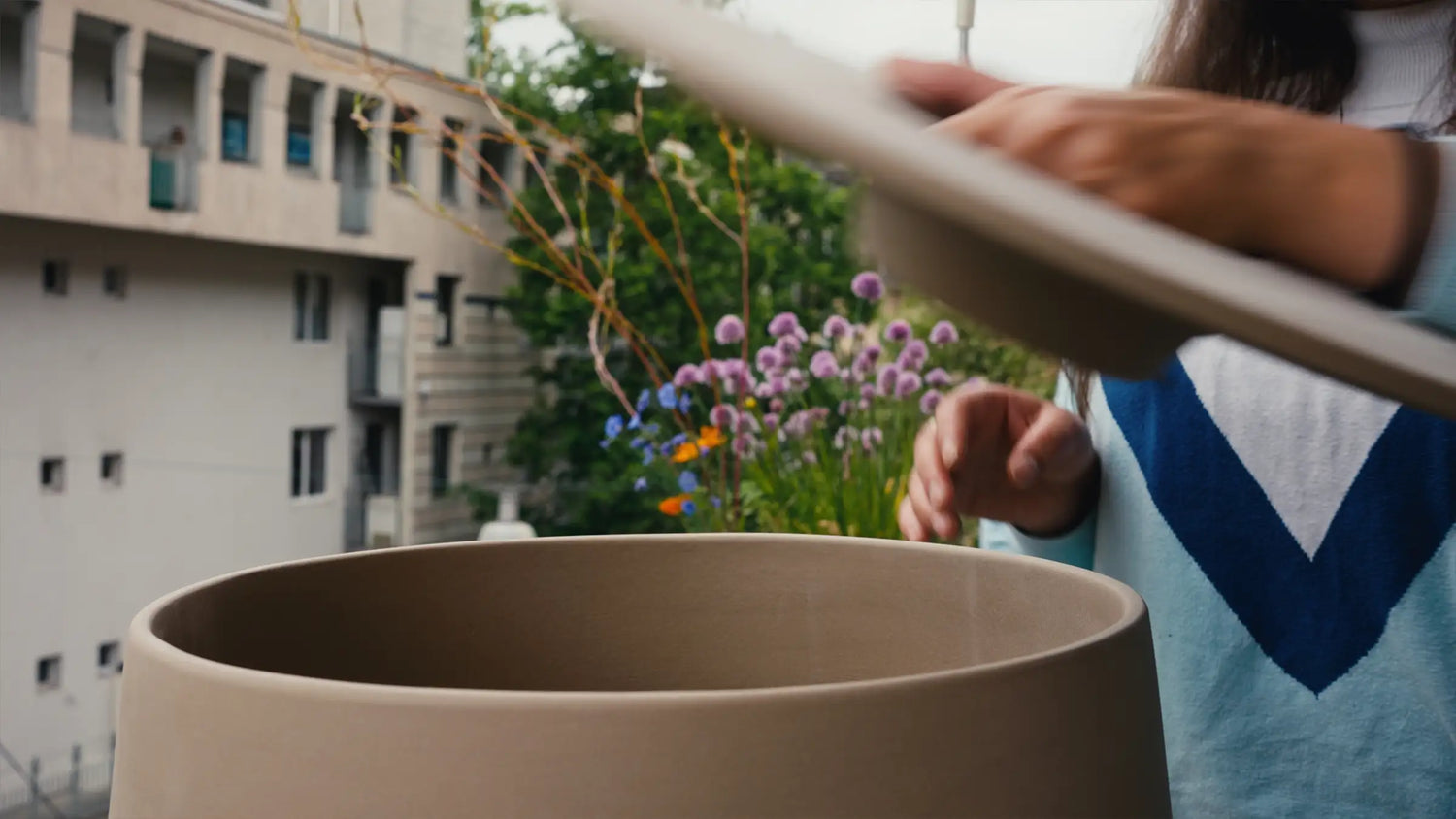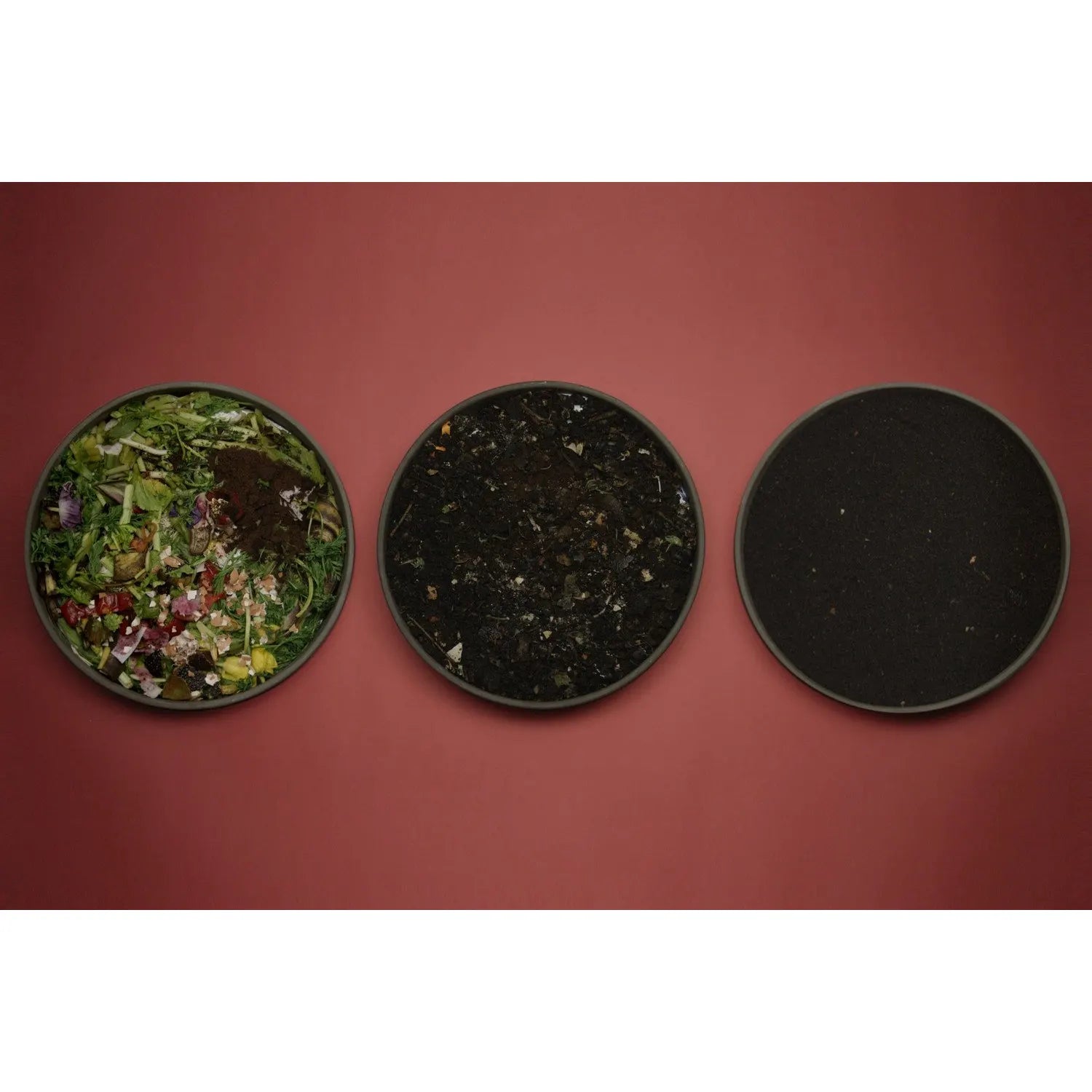Why composting with worms?
With worm composting, you can reduce your waste volume by a whopping 30%. At the same time, you produce your own fertiliser. This not only feels good, but is also easy on your wallet.
Experience the cycle of nature
Let yourself be inspired by the worm compost ecosystem and experience directly what it means to close cycles. Composting with worms allows you to access and experience complex processes.
Make the world better with worm compost
The dominant waste disposal system of our time wastes valuable resources and replaces them with harmful products, which has serious consequences for people, the environment and the climate. Every kilogramme of organic waste that does not end up in household waste makes an important contribution to environmental and climate protection.
Collapsible content
Five good reasons for worm composting
- By storing organic waste for a short period and directly utilizing it, fewer harmful greenhouse gases (methane CH4) are produced.
- The transport of organic waste is saved.
- Those who compost themselves become sensitized to the issue of biogenic waste and food waste.
- Through substitution performance in substrates/soils or plant systems compared to disposal in household waste.
- Due to savings arising from the method of disposal, e.g., methane gas emissions in landfills.
Active climate protection
Worm composting is climate-positive! You actively help to reduce greenhouse gases and sequester CO2 - every day and in passing.
Benefits of worm composting
Collapsible content
Improved nutrient supply
Compost not only supplies plants with nutrients, but also increases the quality of the harvested products. The purchase of often environmentally problematic fertilizers can be replaced and transports can be saved.
Reduces nutrient leaching
Only 30-50% of the fertiliser used is absorbed by the plant. Compost as a nutrient source binds nutrients and protects them from leaching.
Stores water
Compost can hold up to 10 times its own weight in water, making your plants more drought-resistant. The water evaporates less quickly, reducing water runoff. Compost significantly increases the water storage capacity in the soil and substrate.
Improves soil fertility
By adding nutrients and soil life, compost improves the biological, chemical, and structural health of soil and substrates. The development and strengthening of the humic layer in the soil is promoted. This leads to an increase in soil fertility, yield stability and plant health.
Reduces pesticide use
Substrates and soils enriched with vermicompost have been shown to suppress plant diseases. The application prevents diseases. This makes the use of pesticides superfluous. The disease-suppressing effect is a crucial quality feature of compost.
Fights climate change
Compost is an effective means of combating climate change. Not only does it reduce the release of greenhouse gases such as methane (CH4) and carbon dioxide (CO2) into the atmosphere, it also binds carbon in the soil. It makes ecosystems more resistant to rising temperatures.
Compost against food waste
Food waste is responsible for ± 8% of global greenhouse gases - According to FOEN analyses, the separate collection of organic waste helps to significantly reduce household food waste. This is because separate collection in households increases the visibility of the own food waste.
Collapsible content
More organic waste than expected
At 44%, organic waste is the largest fraction of average household waste worldwide in terms of volume (Swiss share: 34%).1
Landfilling organic waste alone causes 3% of the greenhouse gases produced by humans. This is roughly equivalent to the size of global air traffic.
1 Survey of waste composition (2012). Federal Office for the Environment, BernHarnessing natural processes
Nature shows us how it's done - dead plant material is broken down by a variety of soil organisms, converted into humus and serves as food for the plants again.with worm composting, you can bring nature into your home.
Easy as pie - even for adults. Worm composting sharpens the senses.
Collapsible content
The difference to classic composting
Composting with worms is a process that does not generate heat. While conventional heat composting requires considerably more technology and effort to produce high-quality compost, the process of worm composting is much simpler - worms ensure aeration and mixing of the materials without human intervention.
Worm compost also contains significantly more nutrients and other plant-promoting substances than traditional compost. Only a fraction of greenhouse gases are released.



